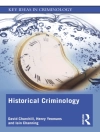Much scholarship on nineteenth-century English workers has been devoted to the radical reform politics that powerfully unsettled the social order in the century’s first decades. Comparatively neglected have been the impetuous patriotism, royalism, and xenophobic anti-Catholicism that countless men and women demonstrated in the early Victorian period. This much-needed study of the era’s “conservatism from below” explores the role of religion in everyday culture and the Tories’ successful mobilization across class boundaries. Long before they were able to vote, large swathes of the lower classes embraced Britain’s monarchical, religious, and legal institutions in the defense of traditional English culture.
Tabella dei contenuti
Preface
Introduction
Chapter 1. Celebrating the Monarchy: Loyalism, Radicalism and the Crowd, 1820–1832
- Analysing Crowds and the Popularity of the Monarchy
- The Monarchy in the Provinces
- The Capital Celebrates the Crown
Chapter 2. ‘True Friends of Her Majesty’: Plebeian Conservatives and Crown, Constitution and Patriotism
- Operative Conservative Associations and Popular Constitutionalism
- The Crown and the Constitution in Election Campaigns and Celebrations
- National Elements and Local Differences
Chapter 3. ‘Above All, Be Faithful to Your God’: Confessional Conflicts and Plebeian Conservatives
- The Conflicts over the Emancipation of the Catholics
- Contesting the Cities: Confessional Conflicts in Local Power Struggles
- Conservative Constitutionalism after Catholic Emancipation
Chapter 4. Conservative Antics, Protest or Racism? Anti-Catholic Aspects of English Street Culture
- Guy Fawkes Day Celebrations before 1850
- The ‘Papal Aggression’ and Its Consequences
- The English Orange Order and Preachers of ‘No-Popery’
- Protest, Spectacles and Anti-Catholicism: St George’s-in-the-East, 1859–1860
Chapter 5. In the Name of Inequality? Tory Radicalism, Social Protest and Plebeian Ideas of Justice
- Social Structures and the Political Language of Protest in the 1830s
- Local Alliances between Tories and Radicals
- Oastler’s Friends? The Operative Conservative Associations after 1842
Chapter 6. ‘Beer and Britannia’ or ‘Moral Reform’? Paternalistic Populism, Self-Improvement and Gender
- Early Paternalism and Calls for Moral Reform
- The Family, Domesticity and the Political Mobilization of Women
Conclusion
Bibliography
Index
Circa l’autore
Jörg Neuheiser is a lecturer at the Eberhard Karls University in Tübingen, Germany. In addition to publications on British politics and the Irish question, he has written several articles on German and transnational histories of labor, politics, and culture. His current book project examines attitudes toward work and unemployment in Germany.












